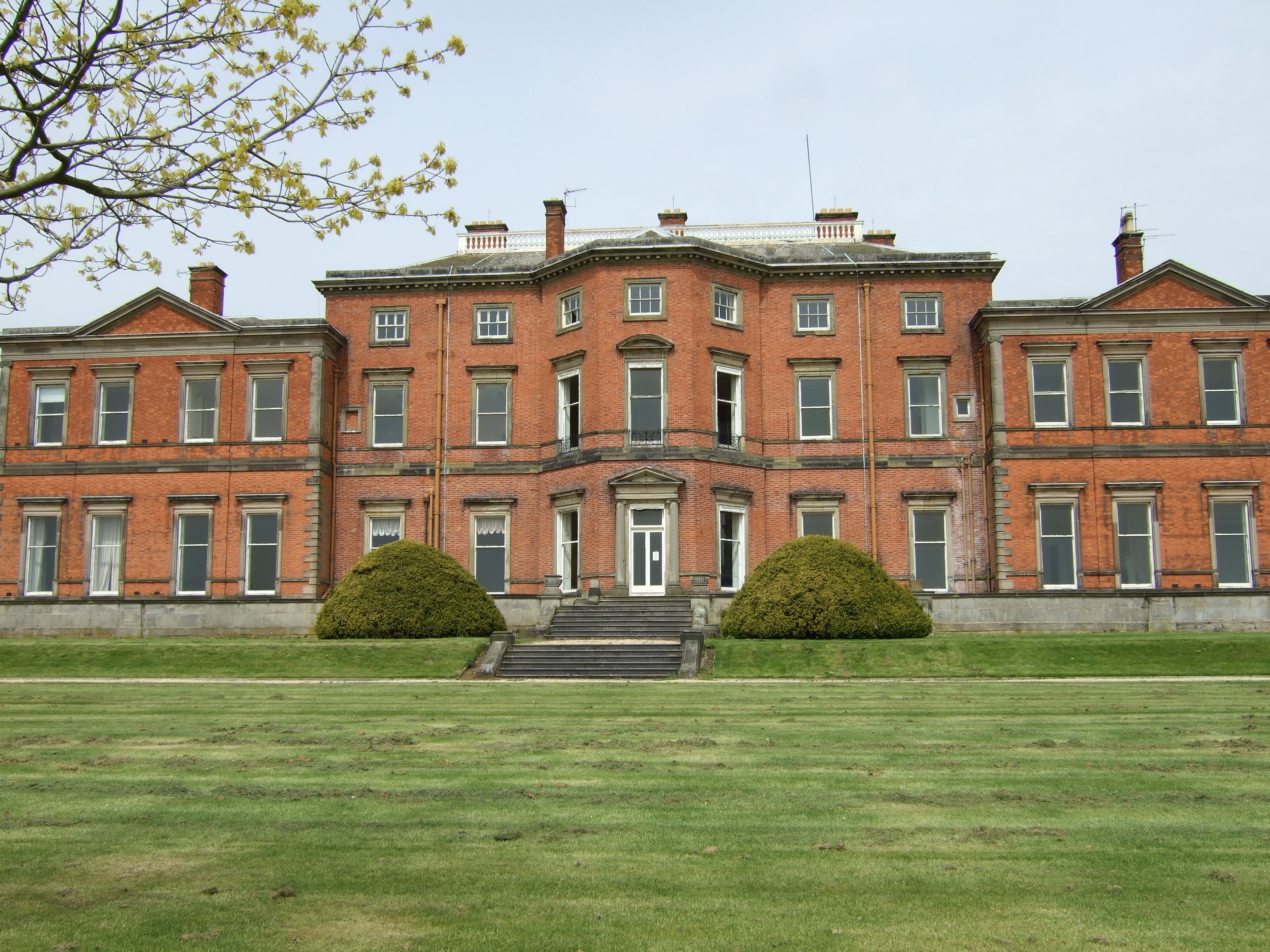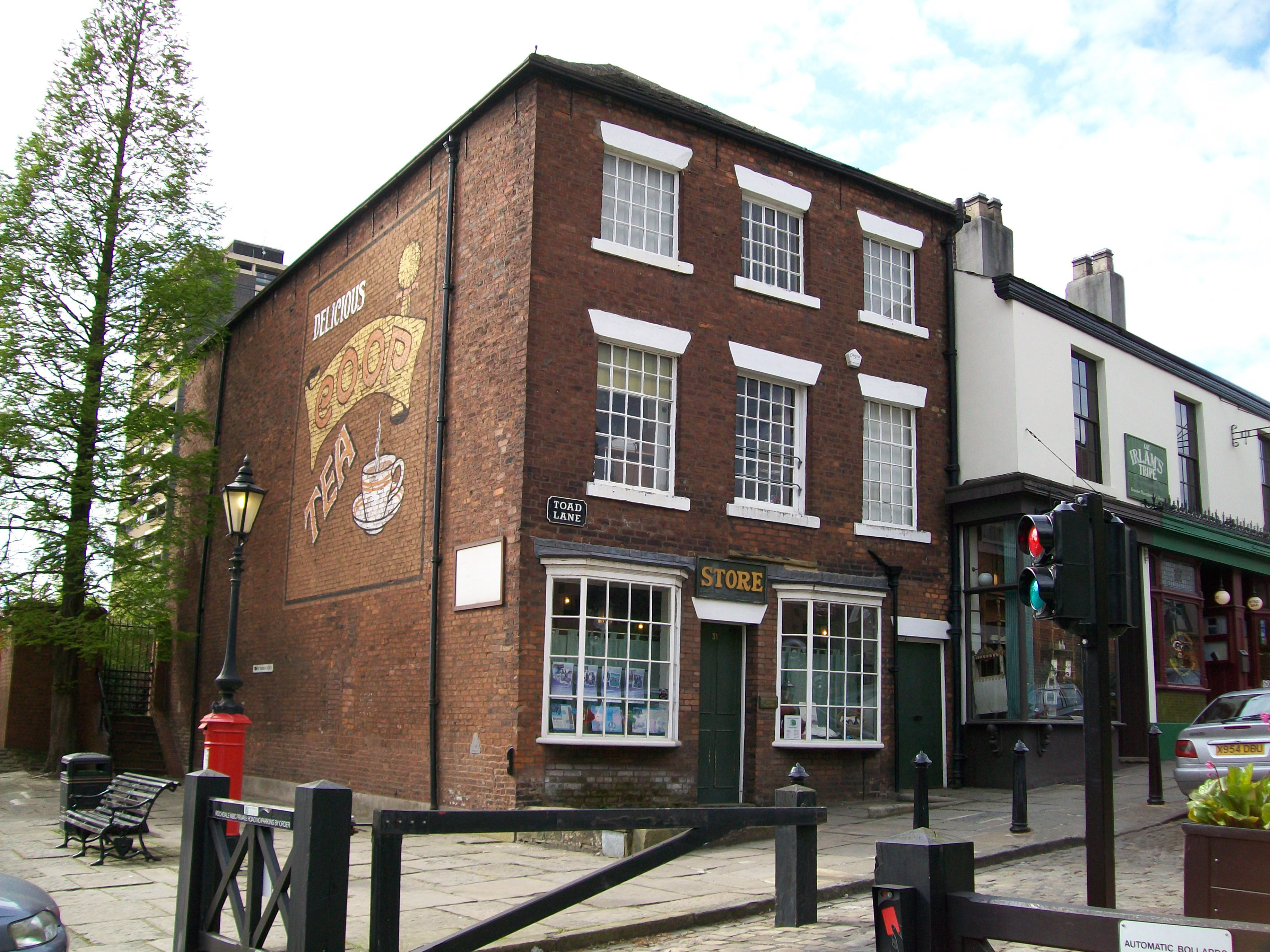|
Co-operative College
Co-operative College is a British educational charity dedicated to the promotion of co-operative values, ideas and principles within co-operatives, communities and society. Origins and development The Co-operative College was established in 1919 by the Co-operative Union with ten overseas students based on the second floor of Holyoake House, Manchester, and in 1943 the College became a charitable trust. In 1945, Holyoake House was damaged by a blitz, and the Co-operative College was forced to relocate to Stanford Hall, where it spent almost fifty years. Along the years that the College spent in Stanford, it ran residential courses in social/economic subjects for adult learners and a wide range of retail and management courses for co-operative employees. In 1946, Dr Robert L. Marshall, OBE, MA, became the Principal and Chief Executive Officer. The College has since returned to its original home at Holyoake House, and Dr Cilla Ross is Principal and Chief Executive. Key areas of ... [...More Info...] [...Related Items...] OR: [Wikipedia] [Google] [Baidu] |
Co-operative
A cooperative (also known as co-operative, co-op, or coop) is "an autonomous association of persons united voluntarily to meet their common economic, social and cultural needs and aspirations through a jointly owned and democratically-controlled enterprise".Statement on the Cooperative Identity. ''.'' Cooperatives are democratically controlled by their members, with each member having one vote in electing the board of directors. Cooperatives may include: * businesses owned and managed by the people who consume th ... [...More Info...] [...Related Items...] OR: [Wikipedia] [Google] [Baidu] |
Manchester
Manchester () is a city in Greater Manchester, England. It had a population of 552,000 in 2021. It is bordered by the Cheshire Plain to the south, the Pennines to the north and east, and the neighbouring city of Salford to the west. The two cities and the surrounding towns form one of the United Kingdom's most populous conurbations, the Greater Manchester Built-up Area, which has a population of 2.87 million. The history of Manchester began with the civilian settlement associated with the Roman fort ('' castra'') of ''Mamucium'' or ''Mancunium'', established in about AD 79 on a sandstone bluff near the confluence of the rivers Medlock and Irwell. Historically part of Lancashire, areas of Cheshire south of the River Mersey were incorporated into Manchester in the 20th century, including Wythenshawe in 1931. Throughout the Middle Ages Manchester remained a manorial township, but began to expand "at an astonishing rate" around the turn of the 19th century. Manchest ... [...More Info...] [...Related Items...] OR: [Wikipedia] [Google] [Baidu] |
United Kingdom
The United Kingdom of Great Britain and Northern Ireland, commonly known as the United Kingdom (UK) or Britain, is a country in Europe, off the north-western coast of the continental mainland. It comprises England, Scotland, Wales and Northern Ireland. The United Kingdom includes the island of Great Britain, the north-eastern part of the island of Ireland, and many smaller islands within the British Isles. Northern Ireland shares a land border with the Republic of Ireland; otherwise, the United Kingdom is surrounded by the Atlantic Ocean, the North Sea, the English Channel, the Celtic Sea and the Irish Sea. The total area of the United Kingdom is , with an estimated 2020 population of more than 67 million people. The United Kingdom has evolved from a series of annexations, unions and separations of constituent countries over several hundred years. The Treaty of Union between the Kingdom of England (which included Wales, annexed in 1542) and the Kingdom of Scotland in 170 ... [...More Info...] [...Related Items...] OR: [Wikipedia] [Google] [Baidu] |
Rochdale Principles
The Rochdale Principles are a set of ideals for the operation of cooperatives. They were first set out in 1844 by the Rochdale Society of Equitable Pioneers in Rochdale, England and have formed the basis for the principles on which co-operatives around the world continue to operate. The implications of the Rochdale Principles are a focus of study in co-operative economics. The original Rochdale Principles were officially adopted by the International Co-operative Alliance (ICA) in 1937 as the Rochdale Principles of Co-operation. Updated versions of the principles were adopted by the ICA in 1966 as the Co-operative Principles and in 1995 as part of the Statement on the Co-operative Identity.ICA Co-operative Principles , 1937, 1966, and 1995 revisions. Current ICA version of co-operative principl ...
|
Stanford Hall Notts
Stanford University, officially Leland Stanford Junior University, is a private research university in Stanford, California. The campus occupies , among the largest in the United States, and enrolls over 17,000 students. Stanford is considered among the most prestigious universities in the world. Stanford was founded in 1885 by Leland and Jane Stanford in memory of their only child, Leland Stanford Jr., who had died of typhoid fever at age 15 the previous year. Leland Stanford was a U.S. senator and former governor of California who made his fortune as a railroad tycoon. The school admitted its first students on October 1, 1891, as a coeducational and non-denominational institution. Stanford University struggled financially after the death of Leland Stanford in 1893 and again after much of the campus was damaged by the 1906 San Francisco earthquake. Following World War II, provost of Stanford Frederick Terman inspired and supported faculty and graduates' entrepreneurialism t ... [...More Info...] [...Related Items...] OR: [Wikipedia] [Google] [Baidu] |
Co-operative Union
Co-operatives UK is a British co-operative federation described as "the central membership organisation for co-operative enterprise throughout the UK". It was founded in 1870 as the Co-operative Central Board, changing its name to the Co-operative Union before finally becoming Co-operatives UK following its merger with the Industrial Common Ownership Movement (ICOM) in 2001. Historically associated with the consumer co-operatives, the merger broadened its scope to include worker co-operatives and it now exists to support and promote the values of the entire co-operative movement throughout the UK. During its history, it has been responsible for the organisation of the Co-operative Congresses, the establishment of both Co-operative Commissions and the creation of the Co-operative College and the Co-operative Party.See references in relevant sections of article. The head office, Holyoake House in Manchester, is a Grade II listed building, and was built in 1911 in memory of th ... [...More Info...] [...Related Items...] OR: [Wikipedia] [Google] [Baidu] |
Robert L
The name Robert is an ancient Germanic given name, from Proto-Germanic "fame" and "bright" (''Hrōþiberhtaz''). Compare Old Dutch ''Robrecht'' and Old High German ''Hrodebert'' (a compound of '' Hruod'' ( non, Hróðr) "fame, glory, honour, praise, renown" and ''berht'' "bright, light, shining"). It is the second most frequently used given name of ancient Germanic origin. It is also in use as a surname. Another commonly used form of the name is Rupert. After becoming widely used in Continental Europe it entered England in its Old French form ''Robert'', where an Old English cognate form (''Hrēodbēorht'', ''Hrodberht'', ''Hrēodbēorð'', ''Hrœdbœrð'', ''Hrœdberð'', ''Hrōðberχtŕ'') had existed before the Norman Conquest. The feminine version is Roberta. The Italian, Portuguese, and Spanish form is Roberto. Robert is also a common name in many Germanic languages, including English, German, Dutch, Norwegian, Swedish, Scots, Danish, and Icelandic. It can be use ... [...More Info...] [...Related Items...] OR: [Wikipedia] [Google] [Baidu] |
Holyoake House
Holyoake House is a building in the NOMA district of Manchester, England, which was completed in 1911. Designed by F.E.L. Harris, it was built for the Co-operative Union in memory of George Holyoake. It is located alongside other listed buildings such as the CIS Tower, Hanover Building and Redfern Building and is owned by Co-operatives UK. Background In 1906 the co-operative activist George Jacob Holyoake died and the Co-operative Movement decided to commemorate him by building a permanent headquarters for the Co-operative Union. The building was designed by architect F. E. L. Harris, who had also designed the nearby Hanover Building in the year of Holyoake's death. It was erected in 1911 on Hanover Street and named Holyoake House. A plaque was erected outside the building dedicating the building to Holyoake's memory. In addition to Co-operatives UK, Holyoake House is also home to the Co-operative College, the Association of British Credit Unions (ABCUL), Co-op News. and ... [...More Info...] [...Related Items...] OR: [Wikipedia] [Google] [Baidu] |
Robert Owen
Robert Owen (; 14 May 1771 – 17 November 1858) was a Welsh textile manufacturer, philanthropist and social reformer, and a founder of utopian socialism and the cooperative movement. He strove to improve factory working conditions, promoted experimental socialistic communities, and sought a more collective approach to child rearing, including government control of education. He gained wealth in the early 1800s from a textile mill at New Lanark, Scotland. Having trained as a draper in Stamford, Lincolnshire he worked in London before relocating aged 18 to Manchester and textile manufacturing. In 1824, he moved to America and put most of his fortune in an experimental socialistic community at New Harmony, Indiana, as a preliminary for his Utopian society. It lasted about two years. Other Owenite communities also failed, and in 1828 Owen returned to London, where he continued to champion the working class, lead in developing cooperatives and the trade union movement, and support c ... [...More Info...] [...Related Items...] OR: [Wikipedia] [Google] [Baidu] |
The Co-operative Group
Co-operative Group Limited, trading as Co-op, is a British consumer cooperative, consumer co-operative with a group of retail businesses including food retail, wholesale, e-pharmacy, insurance and legal services, and funeral care. The Co-operative Group has over 65,000 employees across the UK. The group has its headquarters in One Angel Square in Manchester. The Group also manages the Co-operative Federal Trading Services, formerly the Co-operative Retail Trading Group (CRTG), which sources and promotes goods for food stores of the co-operative movements of the UK. It introduced the Co-operative brand in 2007, which is used by many consumers' co-operatives in the UK and managed by the group. History Beginnings (1844–1938) The Co-operative Group has developed over the years from the merger of co-operative wholesale society, co-operative wholesale societies and many independent retail societies. The Group's roots are traced back to the Rochdale Society of Equitable Pionee ... [...More Info...] [...Related Items...] OR: [Wikipedia] [Google] [Baidu] |
Co-operative Studies
The purpose of co-operative education and co-operative studies, according to the ICA's Statement on the Co-operative Identity, is that Co-operative societies "provide education and training for their members, elected representatives, managers, and employees so they can contribute effectively to the development of their co-operatives. They inform the general public – particularly young people and opinion leaders – about the nature and benefits of co-operation." As such, it forms the fifth Rochdale Principle. Subfields of this include Co-operative economics, and the History of the cooperative movement. In December 2011 a special edition of the ''Journal of Co-operative Studies A journal, from the Old French ''journal'' (meaning "daily"), may refer to: *Bullet journal, a method of personal organization *Diary, a record of what happened over the course of a day or other period *Daybook, also known as a general journal, a ...'' was given over to the subject of co-operative lea ... [...More Info...] [...Related Items...] OR: [Wikipedia] [Google] [Baidu] |





.jpg)
